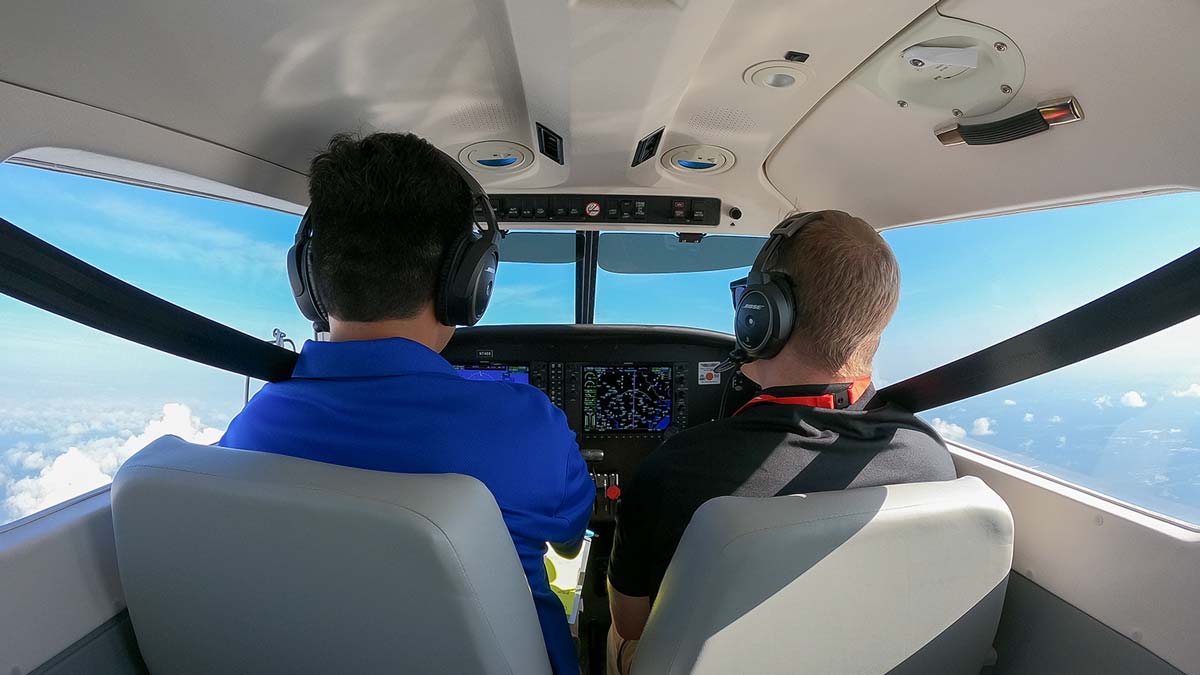Ask any child what they want to be when they’re older And “pilot” still makes the list. It’s an occupation that’s full of adventure, precision, and freedom. As the dream becomes reality, however, aspiring aviators start asking themselves what exactly do pilots earn and is the cost worth it?
It’s more than just a matter of a number. Understanding the current salaries of airline pilots means navigating through a mix of beginning wages, growth trajectories, benefit structures and real-world trade-offs that influence the financial aspect of aviation.

Image credit: flightschoolusa.com
Start small: The reason why many pilots start in the regional world
Most pilots don’t walk straight into the cockpit of the Boeing 787. Their careers typically start by working for regional airlines, flying smaller aircrafts and routes that are shorter. These jobs are training areas for future captains and their pay is a reflection of this.
A regional airline pilot salary typically starts around $45,000 to $70,000, depending on the airline and whether the pilot comes with flight experience or is fresh out of school. Although it may seem low when compared to the cost for flight school, having regional experience can provide greater opportunities. Regional airlines are increasing pay quickly because of the pilot shortage.
Commercial Pilot Salary It’s Not Always What You Think
Then things get interesting. Commercial pilot certification doesn’t necessarily mean that you’re flying with major airlines. It’s the fact that you’re licensed to be compensated for the duration of your flight. You can fly cargo, charters or sightseeing jets. Each one of these options comes with distinct compensation packages.
A charter pilot can make $60,000. A Gulfstream G650 Corporate Captain may earn up to $200,000. Commercial pilot salaries are different due to the broad spectrum of roles and risk. Contrary to the established seniority systems for airlines, commercial sectors tend to base pay on negotiation or the type of aircraft and contract terms with customers.
The numbers begin to get huge
Pay for pilots in USA increases in value as you progress through the ranks. First officers at an important U.S. airline might earn around $150,000 to $90,000. a senior captain flying international wide-body routes can earn $300,000 to $400,000, occasionally more with overtime or bonuses.
But these figures do not show the entire picture. High seniority often comes with lengthy hours, a gruelling schedule and sacrifices in lifestyle. It’s an enjoyable career, however it’s not always an enthralling one.
What your pay check doesn’t show
A key part of any salary discussion is the benefits. And it is here that many pilots appreciate the value of benefits over the dollars. Benefits can be significant to the overall quality of life. They range from full health insurance pension plans, to travel privileges extended to family members.
In addition, a lot of airlines offer the possibility of signing bonuses (sometimes $15,000 to $75,000) for experienced pilots, especially those with military background or type ratings that are in high demand. These bonuses are a sign of the urgent need for qualified professionals as the U.S. faces an aging pilot workforce and increasing travel demand.
Is It Worth It?
In the United States, becoming a licensed pilot is not easy, but it is also expensive. Flight school can range from $70,000 to $150,000. Many pilots won’t make six figures for several years. However, the benefit over time is substantial.
Many pilots are satisfied with their work security, structured career advancement, and flexible schedules that are envied by other professions. Most importantly, for many they enjoy the view from their flight deck and the satisfaction of piloting a plane advantages that no salary can fully capture.
Final Thoughts
A pilot salary in the USA does not just revolve around numbers; it’s about the journey, growth and a life style. For those who dream of being a pilot and want to commit the time and money as well as the discipline to reach the skies and fly, this job offers more than only a salary but a sense of purpose. You can pick between regional or commercial jobs. Each step will bring you better earnings and a wider horizon.


